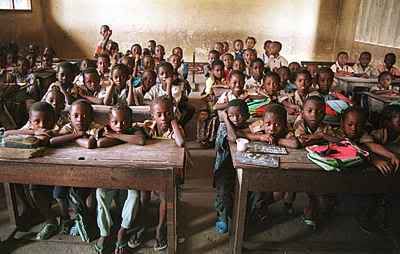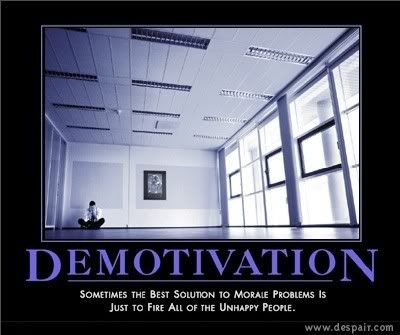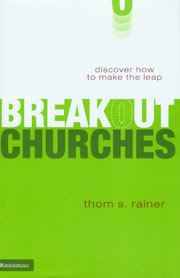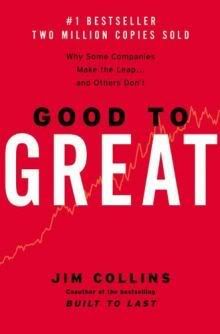Basic Concepts in Practical Mercy
01: Biblical Reasons for Poverty
In the Bible, there are three reasons for poverty:
1. Oppression / Injustice Another's fault
2. Calamity / Natural disaster No particular fault
3. Laziness / Sin Your fault
 Oppression
Oppression
Poverty as a result of oppression:Psalm 82:1-4, God presides in the great assembly; he gives judgment among the "gods": "How long will you defend the unjust and show partiality to the wicked? Defend the cause of the weak and fatherless; maintain the rights of the poor and oppressed. Rescue the weak and needy; deliver them from the hand of the wicked.
Psalm 72:1, 4, Endow the king with your justice, O God, the royal son with your righteousness… He will defend the afflicted among the people and save the children of the needy; he will crush the oppressor.
Psalm 74:21, Do not let the oppressed retreat in disgrace; may the poor and needy praise your name.
Proverbs 16:19, Better to be lowly in spirit and among the oppressed than to share plunder with the proud.
Ecclesiastes 5:8, If you see the poor oppressed in a district, and justice and rights denied, do not be surprised at such things; for one official is eyed by a higher one, and over them both are others higher still.
Isaiah 1:17, Learn to do right! Seek justice, encourage the oppressed. Defend the cause of the fatherless, plead the case of the widow.
Isaiah 10:1-2, Woe to those who make unjust laws, to those who issue oppressive decrees, to deprive the poor of their rights and withhold justice from the oppressed of my people, making widows their prey and robbing the fatherless.
Isaiah 26:6, He humbles those who dwell on high, he lays the lofty city low; he levels it to the ground and casts it down to the dust. Feet trample it down— the feet of the oppressed, the footsteps of the poor.
Amos 2:7, They trample on the heads of the poor as upon the dust of the ground and deny justice to the oppressed. Father and son use the same girl and so profane my holy name.
God's people are commonly poor because of oppression:1. At the birth of God's holy nation Israel, the people were slaves because of oppression (see especially Exodus 1:11-12; 3:9).
2. For the first 400 years of their nation, Israel was repeatedly oppressed by various Canaanite nations (Judges).
3. God's anointed, David, was oppressed individually by his father and brothers and then by the King Saul (1 Samuel).
4. After a brief period of national success (wherein they forgot the lessons they "learned" about oppression and they oppressed everyone around them) Israel splits and is soon oppressed by various evil kings, and finally by Assyria in the North (722) and Babylon in the South (586). They are further oppressed by Persia and then Rome.
In all these oppressions, God sides with the victims, not the oppressors.Deuteronomy 26:7, Then we cried out to the LORD, the God of our fathers, and the LORD heard our voice and saw our misery, toil and oppression.
Psalm 9:9, The LORD is a refuge for the oppressed, a stronghold in times of trouble.
Psalm 10:17-18, You hear, O LORD, the desire of the afflicted; you encourage them, and you listen to their cry, defending the fatherless and the oppressed, in order that man, who is of the earth, may terrify no more.
Psalm 103:6, The LORD works righteousness and justice for all the oppressed.
Psalm 146:7-8, He upholds the cause of the oppressed and gives food to the hungry. The LORD sets prisoners free, the LORD gives sight to the blind, the LORD lifts up those who are bowed down, the LORD loves the righteous.
Proverbs 14:31, 31 He who oppresses the poor shows contempt for their Maker, but whoever is kind to the needy honors God.
Isaiah 49:25-26, 25 But this is what the LORD says: "Yes, captives will be taken from warriors, and plunder retrieved from the fierce; I will contend with those who contend with you, and your children I will save. I will make your oppressors eat their own flesh; they will be drunk on their own blood, as with wine. Then all mankind will know that I, the LORD, am your Savior, your Redeemer, the Mighty One of Jacob."
Isaiah 60:14, The sons of your oppressors will come bowing before you; all who despise you will bow down at your feet and will call you the City of the LORD, Zion of the Holy One of Israel.
Ezekiel 18:5, 7, "Suppose there is a righteous man who does what is just and right… He does not oppress anyone, but returns what he took in pledge for a loan. He does not commit robbery but gives his food to the hungry and provides clothing for the naked.
Ezekiel 45:9-10, " 'This is what the Sovereign LORD says: You have gone far enough, O princes of Israel! Give up your violence and oppression and do what is just and right. Stop dispossessing my people, declares the Sovereign LORD. 10 You are to use accurate scales, an accurate ephah and an accurate bath.
Amos 4:1-2, Hear this word, you cows of Bashan on Mount Samaria, you women who oppress the poor and crush the needy and say to your husbands, "Bring us some drinks!" The Sovereign LORD has sworn by his holiness: "The time will surely come when you will be taken away with hooks, the last of you with fishhooks.
Zephaniah 3, 19-20, At that time I will deal with all who oppressed you; I will rescue the lame and gather those who have been scattered. I will give them praise and honor in every land where they were put to shame. At that time I will gather you; at that time I will bring you home. I will give you honor and praise among all the peoples of the earth when I restore your fortunes before your very eyes," says the LORD.
Malachi 3: 5, "So I will come near to you for judgment. I will be quick to testify against sorcerers, adulterers and perjurers, against those who defraud laborers of their wages, who oppress the widows and the fatherless, and deprive aliens of justice, but do not fear me," says the LORD Almighty.
CalamityPoverty as a result of calamity:
Genesis 47, a famine in Egypt caused widespread poverty.
Ruth 1, Naomi and her daughters-in-law were poor because their husbands (and sons) had died.
1 Kings 17, Elijah helps a woman who is poor because her husband died.
John 9, Jesus helps a man who is poor because he was blind.
There are many other examples throughout scripture, and many we know in our own lives.
One of the key signs of the "return of David" or "the Son of David" or the "Messiah" is the reversal of the effects of these misfortunes:Luke 4:14-21, Jesus returned to Galilee in the power of the Spirit, and news about him spread through the whole countryside. He taught in their synagogues, and everyone praised him. He went to Nazareth, where he had been brought up, and on the Sabbath day he went into the synagogue, as was his custom. And he stood up to read. The scroll of the prophet Isaiah was handed to him. Unrolling it, he found the place where it is written: "The Spirit of the Lord is on me, because he has anointed me to preach good news to the poor. He has sent me to proclaim freedom for the prisoners and recovery of sight for the blind, to release the oppressed, to proclaim the year of the Lord's favor." Then he rolled up the scroll, gave it back to the attendant and sat down. The eyes of everyone in the synagogue were fastened on him, and he began by saying to them, "Today this scripture is fulfilled in your hearing."
Luke 7:18-23, John's disciples told him about all these things. Calling two of them, he sent them to the Lord to ask, "Are you the one who was to come, or should we expect someone else?" When the men came to Jesus, they said, "John the Baptist sent us to you to ask, 'Are you the one who was to come, or should we expect someone else?' " At that very time Jesus cured many who had diseases, sicknesses and evil spirits, and gave sight to many who were blind. So he replied to the messengers, "Go back and report to John what you have seen and heard: The blind receive sight, the lame walk, those who have leprosy are cured, the deaf hear, the dead are raised, and the good news is preached to the poor. Blessed is the man who does not fall away on account of me."
LazinessPoverty as a result of laziness:Proverbs 6:6-11, Go to the ant, you sluggard; consider its ways and be wise! It has no commander, no overseer or ruler, yet it stores its provisions in summer and gathers its food at harvest. How long will you lie there, you sluggard? When will you get up from your sleep? A little sleep, a little slumber, a little folding of the hands to rest- and poverty will come on you like a bandit and scarcity like an armed man.
Proverbs 21:17, He who loves pleasure will become poor; whoever loves wine and oil will never be rich.
Proverbs 23:20-21, Do not join those who drink too much wine or gorge themselves on meat, for drunkards and gluttons become poor, and drowsiness clothes them in rags.
2 Thessalonians 3:9-10, We did this, not because we do not have the right to such help, but in order to make ourselves a model for you to follow. For even when we were with you, we gave you this rule: "If a man will not work, he shall not eat."
Our ResponseClearly, in every individual case there is more than one reason for a person's poverty. No one is without sin, and we all oppress each other in one way or another, of course. The reasons for poverty are a very complex mix of these three in real life. Each can lead to the others.
One thing is for sure, though -- we are our brothers' keeper. God commands us to get involved to help the poor, no matter the reason for their poverty. We can respond in different ways to alleviate the different reasons for poverty:
Oppression -- oppression and injustice exist all around us. God wants us to liberate those who are captive by racism, oppressed by unjust housing laws, and exploited by poor education. Commonly helping these people means directly fighting the oppressors with non-violence.
Calamity -- calamities are commonplace everywhere, but South Florida is famous for natural disasters. However, we must also respond to the needs of those who are handicapped, elderly and widowed, the orphans, the refugees and the immigrants. Most people are eager to help when shown the needs.
Laziness -- only God can change the hearts of individuals, but he has chosen to do so though his people. Our compassion and loving service (which rarely means "handouts") is the tool he uses to transform lives. As Pastor Lem Tucker used to say all the time, "He who has the greatest truth, must have the greatest love, and that is the greatest proof."
In some ways, these are the hardest people to love and be merciful to unless our hearts are overwhelmed by the mercy God showed us before we took a step in his direction. We were all lazy (in fact, we were dead!) in our sin before God opened our eyes to see him.
On the last day, when we stand before the throne of grace we will give an account for all we have done. When God asks us about our relationship to the lazy bum who won't get a job, we will not be proud to say to him, "I didn't let that lazy bum have any of my mercy! He wouldn't appreciate it! He would take advantage of it! I didn't let that happen. He didn't fool me. He tried to get my money, but I wouldn't let him. Aren't you so proud of me!" No, we will want to say, with tears in our eyes, "I did everything I could do to show him the love of Christ -- I gave him everything I had, I used all my resources to try and convince him of your mercy and grace, but he wouldn't listen. He squandered all the mercy he received, but I tried."
What if Jesus, on his way to the cross, had thought about us and said, "Now that I think about it, they will probably abuse my grace and mercy. They'll probably take advantage of it to sin even more. Nevermind. I'm not going to do it." He knows we take advantage of his grace all the time, but he give his life to us anyway. How much more should we give our wallets, our homes, our food, and our lives for the lazy poor?
Labels: culture, morals, original writing, poverty, theology








